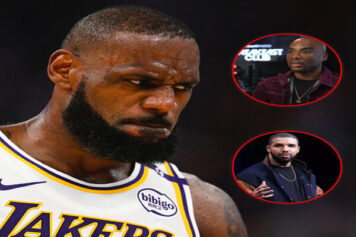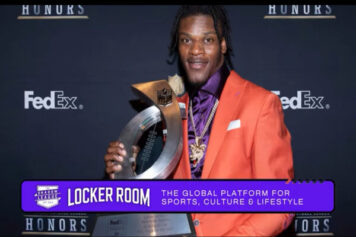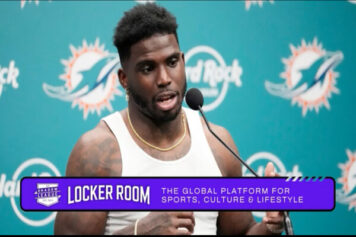When you think of New York City, you think of a robust and diverse school system that strives to offer kids of all colors a strong education mixed with invaluable recreational activities. Jenny Veloz, a Bronx community activist affiliated with Fair Play Coalition, tells The Shadow League otherwise.
In fact, there is a deep and troubling disparity between the way sports are allocated along racial demographics in New York City. New York’s Public School Athletic League is straight screwing its Black and Latino High School students out of enriching sports activities.
Veloz and the Fair Play Coalition are at the forefront of the crusade to inspire New York City’s Black and Latino students, parents, teachers, administrators and allies to stand together to demand equitable access to after school sports programs.
Veloz: The coalition was started because a pattern was discovered by various non-profit organizations and also my organization, New York Lawyers for the Public Interest, that Black and Latino students didn’t have equal access to the same number of sports in their PSAL high school as students who attend schools where other races are the majority.
Why is @NYCMayor refusing to implement common sense reforms to @PSALSports so that’s all girls can play soccer?? @BrandonCardet @LRobinsonNYC @DOEChancellor @fairplayNYC @TeensTakeCharge @USWNT @MiaHamm pic.twitter.com/R1n48l6HxS
— NYCLetEmPlay (@nycletemplay) June 11, 2019
Veloz: We are just a coalition that is bringing light to this problem and putting it out in the forefront because a lot of people don’t know this is a problem. A lot of parents just think its the norm. That should not be the case. All students should have access to sports. We want parents and students to advocate for themselves and understand that it’s NOT OK that their school only has maybe two sports, whereas another school has 15 or 20.
The Story Fueling The Fight
The statistics fueling their fight tell a frightening and damaging story.
- Approximately 20,800 NYC public high school students attend a school with no PSAL teams. 83.5% of these students are Black or Latino.
- Black and Latino students are more than twice as likely as students of other races to attend a New York City public high school offering no PSAL team opportunities whatsoever
- On average, a Black or Latino student in New York City’s public high schools attends a school with nearly ten fewer teams than students of other races
- High schools with the lowest percentage of Black and Latino students offer the most teams in the school system. Students in schools with 0–10% Black and Latino enrollment have, on average, 40 PSAL teams available to them.
- By contrast, New York City’s most segregated schools, with 95−100% Black and Latino enrollment, have only seven PSAL teams on average.
And before you go there –Veloz tells the Shadow League — don’t say that Black and Latino kids only want to play a handful of sports. That kind of thinking is archaic, discriminatory and egregiously false. It reveals a serious philosophical gap between the PSAL administration and the students who fill its schools. The situation also reeks of racism and systemic oppression of these students.
Veloz: I grew up in New York City, so I can empathize with these issues. A lot of high schools think all Black and Latino students want to do is play baseball, football or basketball and those should be the only sports offered. But what about the students who want to play volleyball, or soccer or lacrosse? The population should not be stereotyped or pigeonholed to like these sports. There are a ton of sports that students and kids like to play.
It also goes beyond sports. It goes to what the power of sports does for individuals. It builds confidence and teaches teamwork and hard work. Sports can impact a child’s life tremendously and having these schools and these students not be able to access it is just wrong.
Sports is proven to enhance the development, maturity, and quality of life for teenagers in many ways. From better overall health, better grades and better emotional and psychological help, to improved social life and community involvement.
We thought this was understood.
How did this happen?
Veloz says her coalition is not sure why the allocation for sports is so drastically better for schools without a Black and Hispanic majority. The PSAL has refused to offer any insight or reasoning into how they allocate funds or deny these smaller schools when they attempt to add new sports to the curriculum.
Veloz: But what we do know is that schools that apply for PSAL sports are being denied. Why are they being denied? What was the PSAL’s process in denying these schools? Which are smaller high schools and why are they being denied access to sports? What are they basing their criteria for denial on?
It could be money, could be something else we just don’t know. We do know that they are discriminating against Black and Latino students and we want to end that discrimination.

According to the New York Times.com, “Over the last two decades, city officials have opened scores of smaller high schools so that young people (particularly inner-city kids of color) would not get buried under the crushing impersonality of the old factory-style schools.
Those reforms have come at a steep cost: the advantage of scale — the ability of big schools to offer programs, such as science courses, music and sports, that often require large numbers of students.
That creates a huge inequity in the sports offered and it affects the communities of color, where larger schools have been disbanded for smaller schools.”
“With the surge of new small high schools, it has become clear that the existing machinery to provide for sports is obsolete. The Public Schools Athletic League rations funding for teams based on a formula that includes the numbers of students who can take part, but the lawsuit argues that its reasoning for approving or denying new teams is often opaque.”
Fighting Back
Black and Latino students pay the price most heavily, according to a class-action lawsuit filed in State Supreme Court, which says racial inequity in the sports programs of the public schools violates the city’s human rights law.
In 2018, students Matt Diaz and Lisa Parks, along with New York Lawyers for the Public Interest and the law firms of Patterson, Belknap, Webb & Tyler and Emery, Celli, Brinckerhoff & Abady, forced the PSAL’s hand.
VERY excited to announce that @fairplayNYC members Lisa Parks and Matt Diaz were recipients of the inaugural @BillieJeanKing Youth Leadership Award at the @ESPN Sports Humanitarian Awards! 💫⚡️ pic.twitter.com/E9aOuxVRGS
— Fair Play Coalition (@fairplayNYC) July 10, 2019
The suit says that city records show that more than 17,000 black and Latino students attend schools without any sports and that when their schools do field teams in the Public Schools Athletic League, there are fewer choices — 15.6 teams as opposed to 25 teams in schools attended by the average student of other races.
“On average, Black and Latino students have access to far fewer teams and sports, and the city spends much less per student than for students of other races,” the suit states. “Black and Latino students are twice as likely as students of other races to lack access to any public high school sports team whatsoever.”
The PSAL offers over 40 varsity and JV team sports, but the Black and Latino schools aren’t receiving access to them.
Forgot to include the snapshot for this bit: pic.twitter.com/0EMlj3JzJx
— Jillian Jorgensen (@Jill_Jorgensen) August 8, 2019
Veloz: I do a lot of community outreach and try to talk to a lot of different student-based organizations, parent and community organizations and finding people who agree that this is an egregious issue and who want to make a change. I explain to them what the issue is and that they can advocate for themselves on behalf of this issue.
It’s not right that schools, where the majority of the population are Black and Latino, don’t have access to sports or only have access to fewer than 10 sports, while high schools whose demographic consists of a major of other races have access to over 20 sports.
Small Steps Lead To Progressive Leaps
The Fair Play Coalition stands together for all High school students in New York City Public Schools to have equitable access to the PSAL and to all athletic fields and courts controlled by DOE — regardless of the size of the school, the borough in which the school is located or the demographics of the school.
The process is incremental because the system is so screwed up that it might take two decades to reverse the current discrimination.
There are signs of progress, however.
In March, a new program called “PSAL All-Access,” was announced. It covers 26 schools in Manhattan, the Bronx, and Brooklyn that enroll a total of 8,500 kids. The program has added 19 Public School Athletic League teams in sports including handball, track, and flag football.
Also, the City Council just passed a bill in May called Intro 242 B that requires New York City’s PSAL and Department of Education to be transparent in the denial process. The bill, introduced by councilman Antonio Reynoso, passed unanimously by a 47-0 vote.
Now the PSAL has to report to the city council on demographics of the schools and what their process is in allocating sports.
Yes, the stuffing pretty much hit the fan.
Councilmember Reynoso said: “All students deserve equal access to sports teams and resources; it is unconscionable that this is not the case today in public schools throughout New York City. Black and Latino students are twice as likely as their peers to attend schools that don’t have a sports team. Such staggering statistics offer reason to believe that these disparities are due to systemic issues in how the DOE allocates funding and resources to schools. My bill will increase transparency between the DOE and the public by requiring the Department to produce a report on how schools are currently being funded for sports teams and resources. Using this information, I will continue to hold the Department accountable in providing all NYC students with equal access to sports. Thank you to my Council colleagues, New York
Veloz says that was a huge victory for Fair Play Coalition and the students. The end goal she says is equal access.
It’s a shame that we are still speaking about these forms of blatant racial inequities in 2019, but while NYC faces those challenges, Fair Play Coalition will continue to educate students and parents on the issue and encourage them to have a voice in the PSAL sports that they want at their school.



